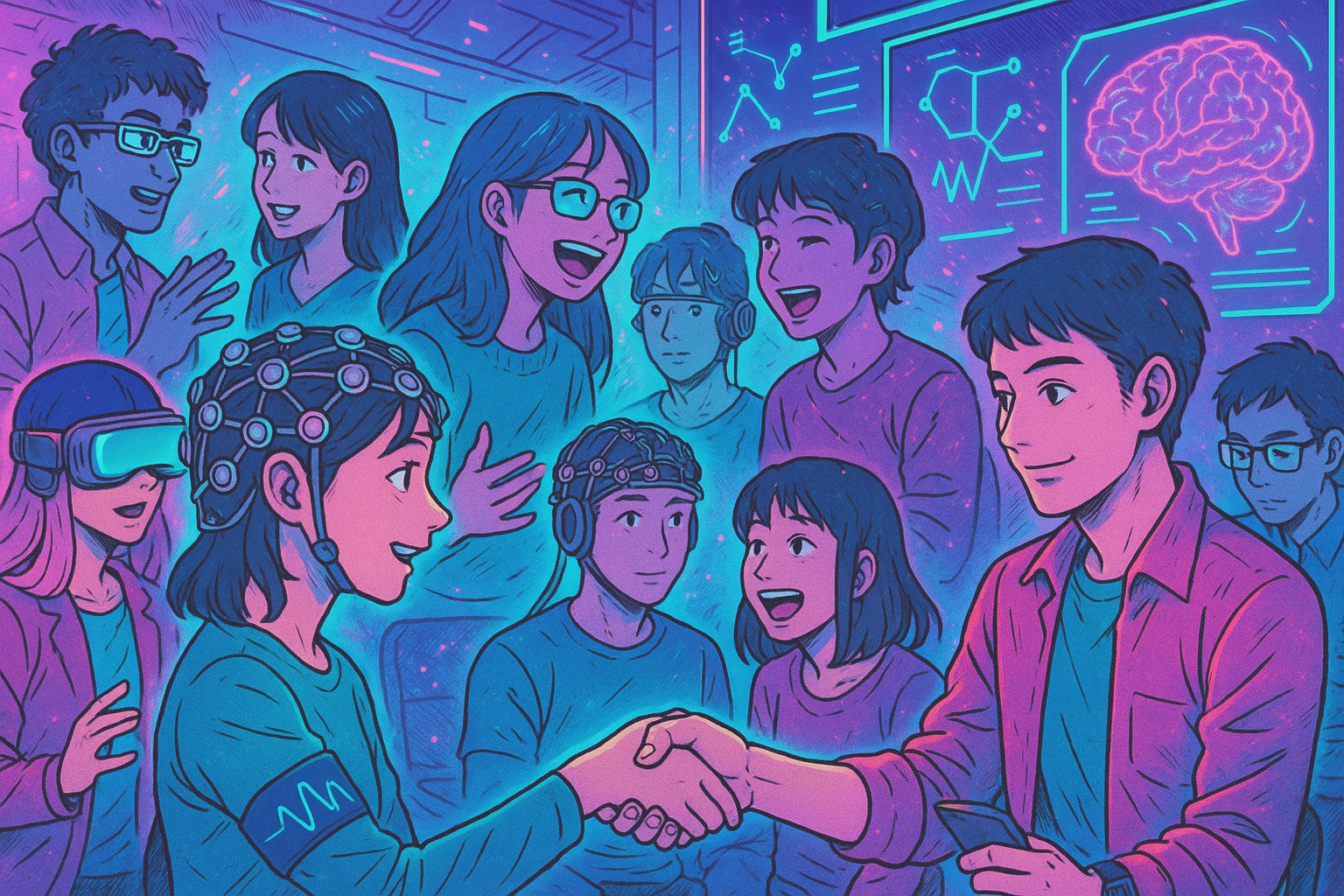Social Connection Workshop 2025

We are accepting expressions of interest to join the Zurich Social Connection Workshop to be held at Villa Hatt on 16-17 September, 2025
Human social connections are incredibly important – people with strong connections learn better and live longer healthier lives. The WHO recently recognised loneliness as a major risk factor for poor health, as well as the urgent need for more research on social connections. At present, research into social connections is fragmented and we do not know how best to measure connections, and how they change in different populations and are influenced by different technologies. Thus, there is an urgent need for focused research on social connections that can bridge gaps between disciplines and address questions that matter in the real world.
Understanding and quantifying social connection requires inputs across different disciplines.
First, human neuroscience offers a biological lens, enabling us to investigate how brain structures and neural processes underlie social behaviours and social cognition. This understanding pairs well with psychology, which sheds light on cognitive, behavioural and emotional factors like attachment, identity, and trust—essential components of forming enduring social bonds.
Second, engineering and computing offer both technologies that can change social connections (virtual reality, online communications) and technologies that can measure social connections (wearable sensors, experience monitoring). For example, social interactions with robots or in virtual reality provide a unique testbed where variables like context, proximity, and emotional feedback are manipulated to better understand how these factors affect real-world relationships.
Third, arts and culture provide powerful contexts that can create shared experiences and new connections, with research showing that cultural attendance can reduce loneliness and improve health. Methods used in theatre and dance including improvisation and emotional storytelling can engage with research in neuroscience and affective computing as ways to create new social connections.
Finally, both technology companies and third-sector organisations have a key role to play the study real-world social connections. Online and virtual communications can change and enable social connections in important ways, while technologies like wearable sensing can quantify social connections. Performing arts groups and schools need to be part of the conversation on how social connection and social learning can be harnessed for good.
By integrating as well as working within and across these fields, interdisciplinary teams of researchers have great potential to capture a holistic, nuanced view of social connection—one that considers both internal processes and external expressions, leading to richer, more applicable insights into how social bonds are created and sustained across diverse contexts.
With this small workshop, we aim to plant the seeds of a pan-European network to study social connection from biological, technical and artistic perspectives. The two-day workshop will feature invited talks by 9 PIs working across these disciplines, and poster presentations from 13 early career researchers with an interest in joining in the dialogue about the future of research in this area.
Please click on the link below to express interest in joining the workshop as a poster presenter and active contributor to the discussions taking part throughout the first day and half of the workshop.
Registration
We are accepting expressions of interest to attend this conference from early career researchers on this external page google form. Please fill this out before 15 August. As we are limited to 13 additional attendees, we might have to select attendees based on a mix of career stage, affiliation and research interests. We will inform all individuals who fill out a registration form of the outcome by Friday, 22 August.
Confirmed Speakers include:
Antonia Hamilton, UCL
Elizabeth Jochum, Aalborg University
Christine Falter-Wagner, LMU München
Agnieszka Pluta, University of Warsaw
Christian Holz, ETH Zurich
Hayley Hung, Delft University of Technology
Ivana Konvalinka, Technical University of Denmark
Jamie Ward, Goldsmiths
Emily S. Cross, ETH Zurich